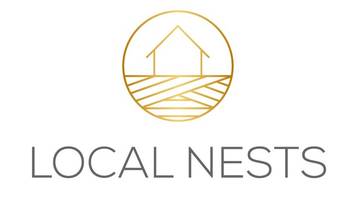Blog > "Date" the Interest Rate and "Marry" the House
How To Think About Buying in This Market
While this is being written, the average national 30-year fixed mortgage rate hovers around 5.6%. It’s a far cry from the 2.8% rates we were seeing this time last year.
So the question is: Is it still reasonable to be thinking about buying in this market?
The short answer is yes. If you feel that you have financial and job security, you should be able to weather the housing market no matter what interest rates do. You can–and should–feel confident about continuing to search for a home.
To understand why it’s okay to buy when interest rates are on the rise, we need to first understand why interest rates are rising, and how they impact mortgage rates.
How Interest Rates Affect Your Mortgage
The reason we’re seeing an increase in mortgage rates is due to the Federal Reserve. The Federal Reserve is a financial institution that sets the Federal Funds Rates (FFR). These rates directly influence interest rates, which determine how much it costs to borrow money.
Although mortgage rates and interest rates aren’t directly correlated, they do tend to follow the same general direction. That means when the Fed increases interest rates, mortgage rates will likely rise, too.
But, for those who are planning to buy in this market, it’s important to remember two things:
- Historically, rates are still on the low side. (In 1980, the Fed hiked rates up to 20%!)
- Rates usually fluctuate, meaning they will eventually fall.
Both of these factors lead us to the following conclusion for current homebuyers:
“Date” the Interest Rate and “Marry” the House
In my 13 years of selling homes, I’ve heard some great pieces of advice. But there’s one that rang the most true: “Date” the interest rate and “marry” the house.
What does this mean? In a nutshell, it means that even though mortgage rates are higher than we’re used to, it’s not a big deal in the long run. Yes, you heard that right.
What really matters is that you buy a house that has longevity. In other words, you should see yourself living in it for years to come.
Because interest rates are in constant flux, you shouldn’t think of the current rates as a lifetime commitment. Instead, ask yourself if you can afford the monthly payments with the current interest rate for a few years, at most.
According to most economic predictions, interest rates will drop again in 1-2 years.
Buying Down the Rate VS Refinancing Later
If you’re planning on buying in this market, it’s important to first make sure you feel that you have financial and job security. That way, you’ll be able to weather the housing market no matter what interest rates do.
That said, those who feel ready to buy can grapple with interest rates in a couple different ways. You can either “buy down” the interest rate, or you can refinance your mortgage down the road.
Mortgage Rate Buydown
A mortgage rate buydown is when a borrower pays an additional fee at the closing table to negotiate a lower mortgage rate. A few things about buying down:
- In order to buy down your mortgage rate, you need to purchase “mortgage points.”
- Each mortgage point costs around 1% of your principal loan.
- For every mortgage point you buy, lending companies will typically reduce your rate by .25%.
Here’s a little example of what that might look like:
In Minneapolis, Minnesota, the median home price is about 320,000. We’re going to pretend that we’re buying a home at that price, and are putting 20% down. We also need to note that the 30 year fixed mortgage interest rate is currently 5.6%.
So, if we wanted to reduce our interest rate by 0.5% we’d need to buy two mortgage points, which would cost us almost $6,000 upfront.
With our new 5.1% mortgage rate, it would take us around 5.3 years to breakeven on the cost of the buydown.
Pros of a Buydown:
- Lowers your monthly mortgage payment.
- Lowers your interest rate.
- Best course of action if you fear mortgage rates will remain high for the next several years.
Cons:
- Takes some time to break even.
- Only worth it if you are staying in your home for several years or more.
- If interest rates drop, you’ll likely still want to refinance. This means you’ll essentially lose the money you invested in the buydown because refinancing also costs money.
Refinancing Your Mortgage Rate
Many people–myself included–will recommend planning to refinance in the future instead of buying down the mortgage rate upfront. Refinancing will give you a better rate of return than the alternative.
Yes, refinancing is expensive–about 2-5% of your principal loan–but when interest rates fall, you may be able to negotiate your rates down much more than you would have been able to buy them down.
Furthermore, your new low interest rate would save you a heck of a lot more money in the long run, and you’d likely break even years earlier.
Pros of Refinancing:
- Lowers your interest rate significantly more.
- Lowers your monthly payment.
- Shortens the payoff term.
- Cash out your equity for other purposes.
- A good plan if you expect mortgage rates to drop in the near future.
Cons:
- Only works if you are staying in your home long-term.
- You need to make sure your savings justify the closing costs.
The Bottom Line
The industry expectation is that the Federal Reserve will begin lowering interest rates within the next few years. Historically, this pattern has shown to be true: When the Fed aggressively raises rates, economic growth tends to slow. Then, to speed things up again, the Fed will lower interest rates (which is good news for homeowners).
If you’re still unsure about buying in this market, there are additional ways you can shoot for a lower interest rate:
Improve your credit score. The higher your credit score, the more easily you’ll qualify for a lower interest rate.
Save for a larger down payment. A larger down payment means a smaller loan. The lower your loan, the more trustworthy you appear to lenders, which may qualify you for a lower interest rate.
Take out a non-PMI loan. If your down payment is at least 20%, you can bypass the need for private mortgage insurance (PMI), which can cost anywhere from 0.5-2% of your loan amount.
Ready To Shop Around? Choose a Trusted Agent and Lender
As a Real Estate Agent with RE/MAX Results, I can help you navigate the unique challenges of buying in this market. Together, we will find a home that will fit into your budget and your long-term plans.
If you’re in the market for a trusted lender, I can also recommend a wonderful lender whom I’ve personally worked with for years: Ali Massa with Results Mortgage. You can find her contact information and apply for a loan all on Ali’s website.
If you need a partner in your search for the perfect home, give me a call at 612-227-5537! I look forward to discussing how I can help you land the house of your dreams.

